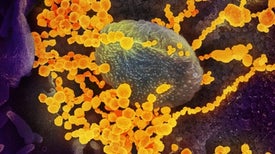
This AI Tool Could Predict the Next Coronavirus Variant
The model, which uses machine learning to track the fitness of different viral strains, accurately predicted the rise of Omicron’s BA.2 subvariant and the Alpha variant

The model, which uses machine learning to track the fitness of different viral strains, accurately predicted the rise of Omicron’s BA.2 subvariant and the Alpha variant

On this episode of the COVID, Quickly podcast, we discuss some parents breathing a collective sigh of relief and the paradox of how effective vaccines can make it harder to create new drugs to treat patients who get the coronavirus...

An advisory committee voted unanimously to recommend authorizing the Moderna and Pfizer shots for the youngest children

On this episode of the COVID, Quickly podcast, we clear up some data misconceptions, get to the bottom of the booster uptake issue and talk Novavax.
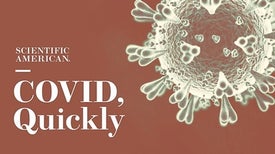
Today we bring you a new episode in our podcast series COVID, Quickly. Every two weeks, Scientific American ’s senior health editors Tanya Lewis and Josh Fischman catch you up on the essential developments in the pandemic: from vaccines to new variants and everything in between...

Experts address when the youngest children could be eligible for the shots, why that has taken so long, and more

Despite similar leadership at the start of the pandemic, Brazilians are more trusting of government and view vaccination as a necessity and a right

Three nasal spritzes, now in advanced trials, could trigger stronger immunity than shots in the arm
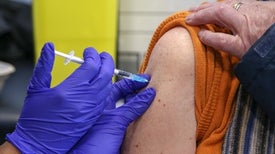
An individual’s health risks, treatment access and local case levels come into play for those who are eligible

Today we bring you a new episode in our podcast series COVID, Quickly. Every two weeks, Scientific American ’s senior health editors Tanya Lewis and Josh Fischman catch you up on the essential developments in the pandemic: from vaccines to new variants and everything in between...

Veterinarians and rabbit owners are racing to protect bunnies as a hemorrhagic disease spreads

New research counters high-profile claims that people who had COVID don’t benefit from vaccination

Today we bring you a new episode in our podcast series COVID, Quickly. Every two weeks, Scientific American ’s senior health editors Tanya Lewis and Josh Fischman catch you up on the essential developments in the pandemic: from vaccines to new variants and everything in between...
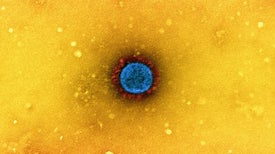
Such protection declines within months of the mRNA COVID vaccines’ third dose. Yet the vaccines continue to ward off severe disease
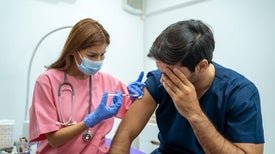
Recent findings blow up assumptions about who chooses to get vaccinated against the disease
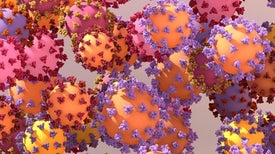
Novel types of jabs could enhance T-cell immunity or protect against emerging strains
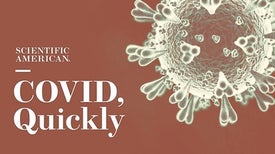
Today we bring you a new episode in our podcast series COVID, Quickly. Every two weeks, Scientific American ’s senior health editors Tanya Lewis and Josh Fischman catch you up on the essential developments in the pandemic: from vaccines to new variants and everything in between...
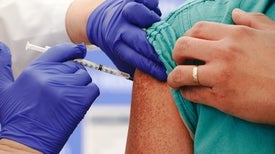
My colleagues and I use a protocol to inoculate safely, and the CDC needs to revise its recommendations
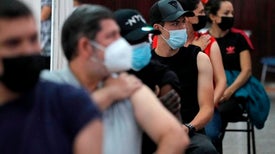
Endless boosting might not be a practical or sustainable strategy, scientists say

People with diseases or treatments that suppress their immune system cannot count on the same protection most vaccinated people have
Support science journalism.

Thanks for reading Scientific American. Knowledge awaits.
Already a subscriber? Sign in.
Thanks for reading Scientific American. Create your free account or Sign in to continue.
Create Account